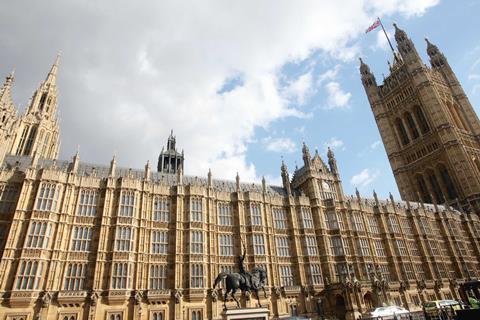The growing tendency of ministers to make laws through secondary legislation is amounting to ‘government by diktat’, committees of the House of Lords warn today. Two parallel reports call for an urgent reset of the balance of power between parliament and the government and for the role of parliament to be restored.
In their reports, the Secondary Legislation Scrutiny Committee and the Delegated Powers and Regulatory Reform Committee condemn a trend, made worse by the twin challenges of Brexit and the pandemic, of using skeleton bills to give ministers sweeping powers to make secondary legislation. The delegated powers committee report points out that minister-made laws can be disguised as 'protocols', 'directions' or 'guidance' but nonetheless have legislative effect.
Conferring powers in skeleton primary legislation may also be concealing a tendency for departments to introduce bills before the underlying policy has been thoroughly thought through.
While the reports note that the extensive use of secondary legislation might be necessary at a time of national crisis, such as during the pandemic, both conclude that government by diktat needs to stop: 'A critical moment has been reached when parliament as a matter of urgency should take stock and consider how the balance of power must be reset afresh,' a joint statement said. This 'does not mean just returning to how things were immediately before the pandemic, but reset afresh'.

Both reports highlight other areas of concern including the blurring of lines between legislation and simple guidance and the use of guidance to fill gaps in legislation, the poor quality of legislation and supporting information, the use of Henry VIII powers which enable ministers to change or repeal acts of parliament through secondary legislation, and the use of tertiary legislation enabling ministers to give powers to themselves or others to make law.
The report calls for the Cabinet Office Guide to Making Legislation to be amended so that it is clear to departments that they must base their decisions about the delegation of powers to ministers on the principles of parliamentary democracy and not political expediency.
Meanwhile, skeleton bills 'should only be used in the most exceptional circumstances'.
Lord Hodgson of Astley Abbotts (former MP Robin Hodgson), chair of the Secondary Legislation Scrutiny Committee said: 'These reports from our two committees are a blunt warning, that hundreds of laws are being imposed on all of us, in effect by government diktat, with no effective scrutiny and control by parliament.'



























6 Readers' comments